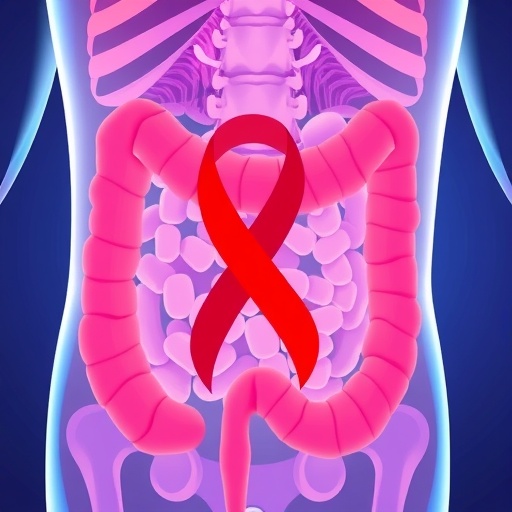Colorectal cancer remains a significant global health challenge, with increasing incidence rates demanding urgent attention from both researchers and healthcare practitioners alike. Recent studies have endeavored to deepen the understanding of the psychological nuances faced by individuals post-surgery. In a groundbreaking investigation, Wu et al. explore a particularly profound concern among patients — the fear of cancer recurrence. This anxiety often looms heavily over postoperative survivors, influencing their quality of life and overall mental health.
Utilizing a cutting-edge random forest model approach, the authors meticulously analyzed various determinants that contribute to the fear of recurrence in colorectal cancer patients. The random forest model, an advanced machine learning technique, offers robust analytical capabilities, significantly enhancing the precision of predictions involved. By implementing this method, the researchers were able to evaluate a multitude of factors simultaneously, painting a comprehensive picture of the complexities surrounding patients’ fears.
In order to effectively collect the necessary data, the researchers engaged with a diverse group of postoperative colorectal cancer survivors. Through a structured questionnaire, they assessed multiple psychosocial variables in addition to established clinical parameters. The diversity of the sample population allowed for more generalizable findings, ensuring that researchers would capture a wide array of experiences and perceptions regarding fear of recurrence.
The results illuminated some intriguing associations between various psychosocial determinants and the fear of recurrence. Certain factors, such as age, mental health history, social support systems, and even individual perceptions of their disease, emerged as significant contributors. The findings suggest that younger patients or those with limited social support reported heightened anxiety levels. Interestingly, patients with pre-existing anxiety or depression were more likely to express fears concerning their cancer returning, underscoring the interplay between psychological wellbeing and chronic illness.
Moreover, the study illustrates that fear of recurrence is not merely a product of patient-related characteristics but is influenced by the broader healthcare environment. Elements such as effective communication from healthcare providers, perceived support during follow-up visits, and the overall quality of the post-operative care experience profoundly affected patient sentiments regarding their disease. The nurturing of positive relationships between patients and healthcare providers could serve as a pivotal factor in alleviating fear and fostering resilience.
The implications of these findings extend far beyond the clinical setting. By identifying key determinants of fear among colorectal cancer survivors, healthcare professionals are equipped to design tailored interventions that could mitigate these fears. Such personalized care emphasizes not only the physical treatment of cancer but also the holistic management of psychological wellbeing. Integrative approaches may include counseling services, support groups, and educational seminars that equip patients with coping mechanisms for dealing with their fears.
Additionally, the study’s insights can guide future research endeavors aimed at uncovering the mechanisms underlying these fears. By contributing empirical evidence to the discourse around the psychosocial impact of cancer, the findings provide a critical foundation for further investigation. Future studies may refine the random forest modeling technique to identify even more nuanced psychological determinants, revealing deeper layers of patient anxiety.
As fear of recurrence can lead to adverse long-term effects, including increased medical costs, diminished quality of life, and a decrease in treatment adherence, addressing this issue is paramount. Understanding the determinants highlighted in Wu et al.’s study opens up pathways not only for immediate intervention but also for long-term strategies to enhance survivorship care. The establishment of comprehensive care frameworks that prioritize mental health could yield significant benefits for patient populations as a whole.
Particularly noteworthy is the potential for integrating these findings into broader oncological practices. For instance, the implementation of routine screenings for psychological distress in survivorship care plans may proactively identify patients at risk of heightened anxiety. By prioritizing psychological health in conjunction with physical health, healthcare systems can create a more supportive atmosphere for those navigating life after colorectal cancer.
The ramifications of such integrative approaches can extend to family dynamics as well. Family members often share in patients’ anxieties and fears, necessitating family-inclusive support strategies. Education and involvement of family members can facilitate a supportive environment, reducing misunderstandings and fostering open dialogue about fears associated with cancer recurrence.
As global policies increasingly recognize the importance of mental health in chronic disease management, proactive measures based on this study’s findings could influence the development of new guidelines in cancer care. The incorporation of psychological assessments and individualized support plans would signify a progressive shift towards holistic cancer treatment modalities that account for both morbidity and psychological resilience.
With advances in technology such as telemedicine and digital mental health resources, implementing interventions that aim to ease fears of cancer recurrence becomes more feasible. Online support groups and mental health apps may provide patients a sense of community and empowerment in their journey, offering tools to manage their fears in the comfort of their homes.
In conclusion, Wu et al.’s exploration into the determinants of fear of cancer recurrence transcends mere statistical analysis; it fundamentally addresses an emotional reality faced by many colorectal cancer survivors. As the research in this field continues to unfold, the hope is for a future where such fears can be effectively managed, allowing patients to reclaim a sense of control over their lives. The overarching narrative that emerges from this study is one of resilience and the potential for constructive change, providing a clarion call for an integrated approach to cancer survivorship that prioritizes holistic health.
Subject of Research: Determinants of fear of cancer recurrence in postoperative colorectal cancer patients.
Article Title: Exploring determinants of fear of cancer recurrence in postoperative colorectal cancer patients: a random forest model approach.
Article References: Wu, J., Cao, Y., Yao, L. et al. Exploring determinants of fear of cancer recurrence in postoperative colorectal cancer patients: a random forest model approach. J Cancer Res Clin Oncol 151, 290 (2025). https://doi.org/10.1007/s00432-025-06344-1
Image Credits: AI Generated
DOI:
Keywords: cancer recurrence, colorectal cancer, psychological factors, machine learning, random forest model, patient anxiety, survivorship care.




